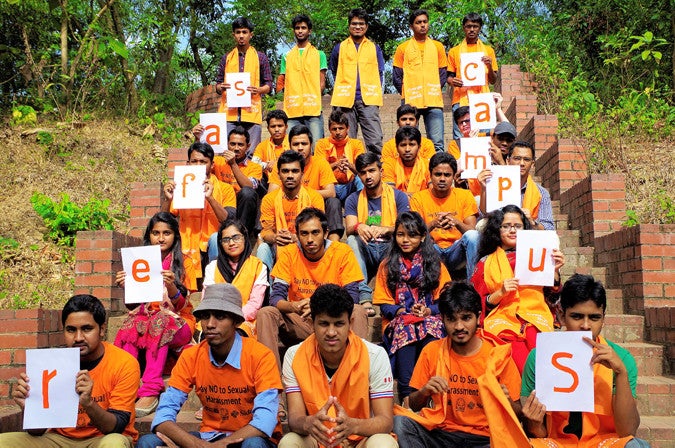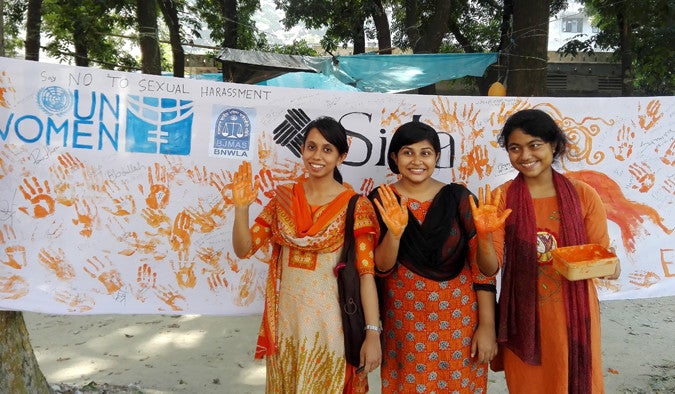Female university students tackle sexual harassment
Date:
Author: Hansika Bhagani
In April this year, Afroza Sultana heard about young women being attacked by a group of young men during Bengali New Year - Pohela Boishakh – at the University of Dhaka. Such attacks have become common at university campuses and around the country over the past few years. The 24-year-old Rajshahi University student was enraged. “We organized a protest, and invited young women to come and show that we support the women who were attacked, and to let everyone know we wouldn’t let that happen in our campus.”

Yet Rajshahi University too, has had its share of cases. “A few days ago, there were two girls who were hanging around the campus after sunset. A guy walked in between them and touched them inappropriately. When one of the girls shouted at him, he started calling her names,” Sultana reports. “This is so normal in our campus.”
In a survey of eight Bangladesh universities, 76 per cent of female students reported incidents of sexual harassment (UN Women, 2013 situational analysis in Bangladesh). UN Women is working with the University Grants Commission in four universities to improve their capacity to inform students, create opportunities for discussion, and increase knowledge on the sexual harassment prevention committee, where students can complain, anonymously if needed.
Afroza Sultana believes that while such education at university is important, the issues emerge much earlier in women’s lives. “I have been volunteering with a community radio station here, Radio Padma” Sultana explains. “The rate of sexual harassment in Rajshahi has really increased. It wasn’t secure for girls to move around, especially after dark. We decided to give women a platform where they could speak up. We asked women to write to us, or come to talk to us. We didn’t reveal their identities on air: we had our announcers read out their stories.” Sultana continued. “Most stories related how women had been harassed as young girls, aged 11 or 12, usually by a teacher or relative. They didn’t understand the situation, and how to deal with it. They were intimidated, and so didn’t talk to their parents. Now, as students, the harassment has continued, and the feeling of helplessness is ingrained.”
Sultana hopes to change the situation by being involved with the university’s programme to end sexual harassment, on and off campus. “I am a member of a Women’s Committee (Mahila Parishad) which campaigns for ending violence against women,” she explains. “We talk to a lot of the girls who are coming in with complaints about sexual harassment, and speaking up about what is happening to them.”
But Sultana wants to see more being done, by universities, and other institutions. “We must talk to more girls. It’s really important that girls speak out. But we have not reached this stage in our campus yet. We should empower girls to talk, by approaching them through rights education. Women should know about their sexual and reproductive health. This should start at primary and secondary school, so that they are connected to their bodies, and know what to do when they are harassed. If women and girls knew their sexual rights, they would talk about it, and not tolerate sexual harassment.”

“I wanted to be part of Orange Day because I felt I wanted to raise my voice. We organized a small event at Rajshahi University where students and staff could sign their support to the cause. This was new for our campus but it was great that people are coming and asking us what’s going on.”